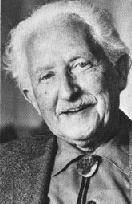Strengths and Weaknesses of Erik Erikson’s Work
Some of
the strengths concerning Erikson’s work involve his eight stages.
Erikson along with several other researchers found that his eight stages
serve as a guide that holds across time and cultures as well. While
other theorists refer to the ongoing approach of development as phases
or transitions, Erikson was not afraid to characterize development as
visibly marked stages. Erikson’s eight stages serve as an outline when
it comes to defining our culture or even comparing it to a culture that
had existed a few centuries ago. Most experimental studies based on
Erikson’s work grip around his efforts to ascertain identity, but also
around his outlook on adolescence. The Eriksonian theory is used based
on the fact that it has been defined as well-equipped to resolve the
crisis of early adulthood, this can be successfully reached once the
crisis of adolescence has been resolved.
Some of the weaknesses regarding Erikson’s work also involve
his eight stages. If we accept his personal understandings of what each
stage stands for, then everything will be ok. What needs to be mentioned
is that sometimes in different cultures the timing can be rather off
when being compared to the eight stages. A quick example would be potty
training. In some cultures babies are potty trained by the time that
they are nine months of age. In other cultures a few years pass until
they begin the potty training and are even breast fed up until the age
of five. Another example is that some cultures people marry as early as
the age of thirteen and start having children shortly after that. Today,
in our culture we have the tendency to hold off on marriage until around
the age of thirty. Another topic that has been pointed out by many
theorists is that Erikson’s theory is more applicable to boys than it is
for girls. This can be linked back to the fact that he agreed with
Freud’s belief that personality differences between boys and girls are
biologically based, which originate in the possession or lack of a penis
(penis envy). Another controversial aspect refer’s to Erikson’s work
belief on identity formation. Something that Erikson did not realize at
the time was that more attention should have been paid to the adult
lifetime. Erikson’s work had a tendency to pay more attention to infancy
and childhood, despite the so-called claim that his eight stages are an
entire-life span theory.



